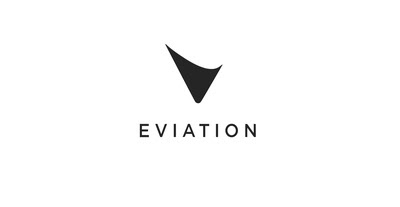PARIS, 3 novembre 2022 /PRNewswire/ — Le monde du spectacle va connaître un tournant majeur avec ce projet d’envergure internationale auquel participent Gims et Dadju, deux artistes toujours précurseurs de nouvelles tendances. La production BE IN META est le créateur de cette expérience futuriste programmée pour le 26 janvier 2023 et qui se prépare actuellement dans le plus grand secret des studios de “motion capture” parisiens.
Pour visualiser le communiqué multimédia de presse, rendez-vous sur:
https://www.multivu.com/
 « C’est une performance artistique et technologique inédite qui croise le spectacle musical live, la super production cinématographique de science-fiction et le jeu vidéo! On entre déjà dans le 22ème siècle. Les fans de tous les horizons géographiques vont pouvoir revêtir un avatar personnalisé et se connecter avec leurs stars dans un environnement 3D à la fois interactif et gamifié. » déclare le fondateur et instigateur de cette série de concerts qui se poursuivra dès le second trimestre 2023 avec d’autres super stars internationales d’ores et déjà embarquées et séduites par le concept BE IN META.
« C’est une performance artistique et technologique inédite qui croise le spectacle musical live, la super production cinématographique de science-fiction et le jeu vidéo! On entre déjà dans le 22ème siècle. Les fans de tous les horizons géographiques vont pouvoir revêtir un avatar personnalisé et se connecter avec leurs stars dans un environnement 3D à la fois interactif et gamifié. » déclare le fondateur et instigateur de cette série de concerts qui se poursuivra dès le second trimestre 2023 avec d’autres super stars internationales d’ores et déjà embarquées et séduites par le concept BE IN META.
Ce nouvel acteur de l’industrie musicale a choisi Gims et son invité Dadju pour la première édition de ce concept de concert 3D inédit accessible depuis n’importe quel écran pour des fans dans le monde entier. La fan base de Gims et Dadju (17 millions) dépasse en effet les frontières françaises pour s’étendre au Congo, en Amérique du sud, au Maroc, en Côte d’Ivoire, en Belgique… et bientôt jusqu’au Qatar où Gims fera partie des très rares artistes à se produire pour l’ouverture de la compétition de la coupe du Monde 2022.
Le Concept BE IN META
 La production reste très discrète sur le scenario de ce tout premier Méta-concert mais les fans y seront entrainés aux côtés des artistes à travers des mondes virtuels fascinants. Ils y évolueront en même temps que les stars qui leur préparent une véritable expérience visuelle et émotionnelle irréelle avec de multiples surprises et clins d’oeil à leurs univers artistiques.
La production reste très discrète sur le scenario de ce tout premier Méta-concert mais les fans y seront entrainés aux côtés des artistes à travers des mondes virtuels fascinants. Ils y évolueront en même temps que les stars qui leur préparent une véritable expérience visuelle et émotionnelle irréelle avec de multiples surprises et clins d’oeil à leurs univers artistiques.
Ce que les fans doivent savoir :
“Gims sur BE IN META” est un concert privé et un jeu vidéo, à diffusion unique dont l’expérience live ne sera accessible que le 26 janvier 2023 à 21h sur la plateforme BE IN META aux seuls détenteurs du ticket.
Les tickets seront en vente uniquement sur les billetteries officielles à partir du 9 novembre. Des tickets spéciaux seront désignés pour remporter des lots exclusifs comme une rencontre avec Gims ou encore la réalisation d’un avatar spécial à l’effigie du gagnant lors du concert.
Gims : « le concept du concert est vraiment nouveau on y retrouve mes inspirations artistiques et je suis impatient de faire vivre ce concert 3D à mes fans. »
Dadju : « La préparation du concert était déjà insolite avec beaucoup de games et de mystères, on se prépare à de vraies surprises. Rdv le 26 janvier! »
La production BE IN META : « Nous pouvons aujourd’hui proposer aux fans l’accès à une toute nouvelle génération de spectacle sans limite physique ni frontière géographique. La connexion à l’artiste est amplifiée par la technologie qui permet de développer des expériences uniques vivantes et vibrantes. Nous sommes réellement impatients de lancer ce premier concert et nous sommes content que ce soient Gims et Dadju qui inaugurent ce concept. »
La campagne de promotion de cet événement exclusif débutera en France et dans le monde dès le début novembre et donnera elle aussi lieu à plusieurs surprises à suivre sur les comptes officiels des artistes Gims et Dadju mais aussi sur les réseaux sociaux de BE IN META.
Les billetteries officielles sont accessibles sur la page de l’évènement : https://beinmeta.io
Contact presse : BE IN META : contact mail : contact@beinmeta.io
Logo – https://mma.prnewswire.com/
Photo – https://mma.prnewswire.com/

